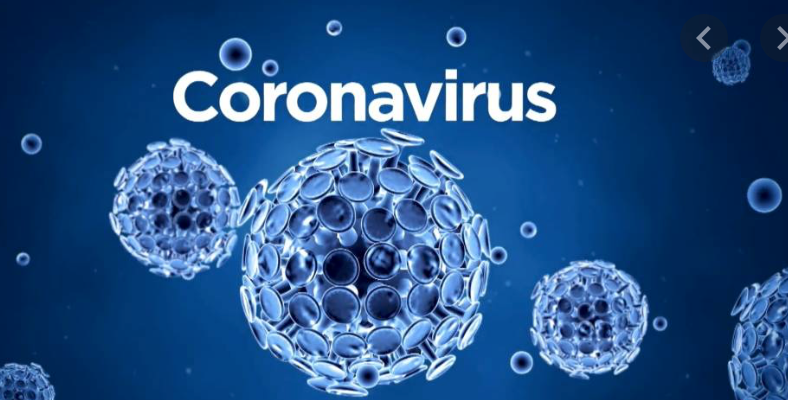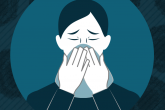
Are you sheltering at home like much of the world, doing your best to maintain social distance? The world is grappling with a virus that is spreading faster than we can provide medical care or a cure. There’s no doubt that these are trying times, much of it uncharted territory for everyone – governments and individuals alike. Fear and anxiety are perfectly normal reactions to this pandemic.
The coronavirus 2 (SARS-CoV-2, as it is scientifically known) causes COVID-19 – COrona VIrus Disease 2019. It is a new virus, so the medical and scientific communities have had a steep learning curve. They’ve had to learn very quickly about how it spreads, the nature of the disease it causes, the best treatment practices, and how to develop a vaccine.
Yes, what we know about COVD-19 is indeed incomplete. Still, doctors and researchers are rapidly improving our knowledge of the virus and the disease it causes. We understand enough about Coronavirus, to know what kinds of protective and preventive measures will keep people safe.
The Coronavirus pandemic is a rapidly evolving situation with a global magnitude that hasn’t been seen for many centuries. It’s therefore not surprising that misinformation and disinformation about it are rife, fueled by fear, anxiety, and social media!
The best and most responsible thing you can do for yourself and your family is to get direction from reputable and reliable sources. Limit your exposure and reliance on social media. Don’t contribute to the spread of harmful misinformation by sharing posts and content about COVID-19 from sources that you haven’t been able to verify.
Here are answers to some of the more common questions people have about the Coronavirus.
 How long does it take for me to have symptoms if I’ve been exposed to the virus?
How long does it take for me to have symptoms if I’ve been exposed to the virus?
You can take from 2 to 13 days to develop symptoms of COVID-19 after exposure. However, most people begin to show signs about 4 to 5 days after being exposed to Coronavirus. Being close to a symptomatic or non-symptomatic COVID-19 patient for more than 10 minutes in an enclosed area will put you at moderate risk for getting the virus.
 Am I infectious from my mouth and nose if I’m a carrier?
Am I infectious from my mouth and nose if I’m a carrier?
Up to 25% of individuals that are infected remain non-symptomatic. That means that 1 of every 4 persons with COVID-19 has no symptoms. The CDC confirms that individuals that don’t have any symptoms can still transmit the virus through the nose and mouth.
If you’re symptomatic, you’re shedding large amounts of virus in your nose, mouth, and throat, probably up to 48 hours before you show symptoms. The infection continues to spread rapidly around the world because non-symptomatic individuals with COVID-19 are transmitting the virus. Persons who develop the disease are also shedding Coronavirus 48 hours before they become symptomatic.
 And are my hands only dangerous if they’ve touched my mouth or nose?
And are my hands only dangerous if they’ve touched my mouth or nose?
Your hands can carry the Coronavirus when you touch anything or any surface that has the virus. That includes your nose and mouth if you’re a non-symptomatic individual with COVID-19 or for as long as 48 hours before you become symptomatic. Recent research shows that you can shed the virus for up to 8 days after you start feeling better. You should wash your hands with soap and water for at least 20 seconds after being out in public. Hand washing is also essential after touching anything outside your home, shopping in the supermarket, after collecting mail and packages, and after handling cash.
 Can I shed the virus from my skin when I have COVID-19?
Can I shed the virus from my skin when I have COVID-19?
You do not shed the virus through your skin. Viral shedding occurs only from the mucus membranes of the nose, mouth, and throat or from sputum if you have a wet cough. Sneezing, coughing, even spraying mouth secretions when talking or laughing can spread the virus.
 When should I use a mask?
When should I use a mask?
There are non-symptomatic transmitters of the Coronavirus, and individuals who develop COVID-19 can transmit the virus 48 hours before they show any symptoms. There is also emerging evidence that suggests that using a mask lowers the transmission of the virus. On March 17, 2020, the New England Journal of Medicine published that Coronavirus can hang out in droplets in the air for as long as three hours before they fall to the ground. For these reasons, I strongly recommend using a mask every time you go out in public. You should also wear a mask if you have any cold symptoms or are around someone with cold or COVID-19 symptoms.
 Should I be practicing social distancing from the people in my household?
Should I be practicing social distancing from the people in my household?
If someone in your household works in an essential sector and continues to go out in public, they should maintain social distancing from others in the house. Anyone who has weak immunity should practice social distancing and wear a mask at home.
If everyone at home has sheltered in place for 10 to 14 days, you’re likely out of the woods, and so don’t need to maintain social distancing from each other. Needless to say, frequent hand washing, disinfecting surfaces, and frequently touched items are also crucial to keeping your household safe.
 When I recover, for how long will I still be infectious?
When I recover, for how long will I still be infectious?
The most recent research suggests that you can continue to shed the virus for up to 8 days after you start feeling better.
 Does Coronavirus travel on surfaces?
Does Coronavirus travel on surfaces?
The Coronavirus can survive on surfaces for up to 3 days if the surface is not disinfected. If you touch any surface with the active virus and then touch your face, you can become infected. That’s why it’s important to disinfect surfaces and frequently handled areas like doorknobs, phones, cupboard and drawer handles, car door handles, tables, desks, countertops, etc. daily. The most common household disinfectants will work as will a diluted bleach solution or a 70% alcohol solution.

If I have young children, should I still take them to the doctor for their routine immunization?
There are infectious diseases other than COVID-19 out there that pose a higher risk to your child. We know that young children from newborns to 24 months old are particularly vulnerable. The American Academy of Pediatrics recommendsthat pediatricians continue to offer office well visits for newborns, infants and younger children who require immunizations.
Check whether your pediatrician has modified the office/clinic schedule and physical space to minimize the risk of Coronavirus exposure. If so, you should take your child in for his or her routine immunization. Available evidence shows that children do not seem to be at higher risk for COVID-19 than adults and tend to get a mild infection. Adults make up a majority of the known cases so far.

What supplies should I have for self-care at home if I have only mild COVID-19 symptoms?
- Prescription medications you already take
- Prescribed medical supplies such as glucose and blood-pressure monitoring equipment
- Masks
- Fever and pain medicine, such as acetaminophen (Do not use Ibuprofen)
- Cough and cold medication (over-the-counter)
- Thermometer
- Fluids with electrolytes
- Soap and alcohol-based hand sanitizer
- Tissues, toilet paper
- Garbage bags
Stay at home and go out only to pick up essential supplies for your household. Wash your hands often, avoid touching your face, and teach your kids to do the same. Disinfect frequently touched surfaces and items, including supplies you bring into your home. Eat healthy foods, get enough sleep, and exercise regularly. Stay safe and find creative ways to enjoy this time sheltering at home.
Toju Chike-Obi, MD

